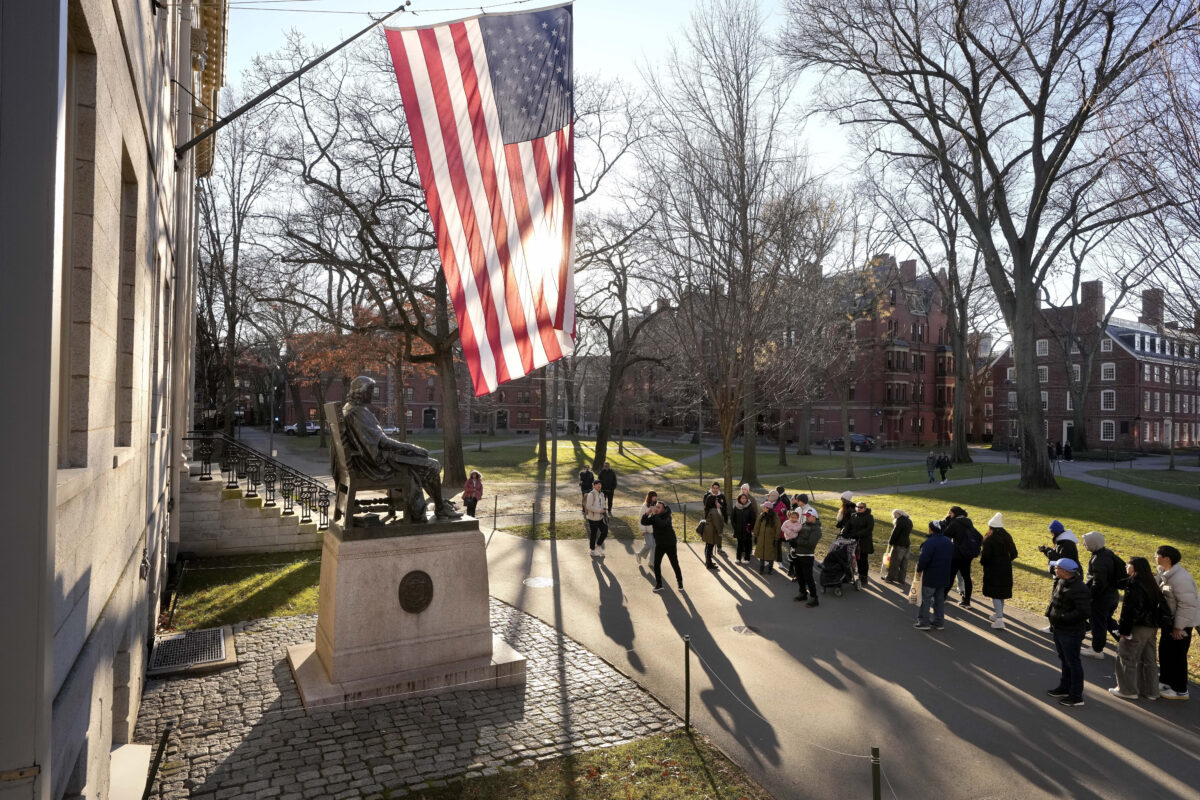The Dismissal of the MIT Lawsuit: Judge Dismisses Antisemitism Lawsuit Against Mit Allows One Against Harvard To Move Ahead

A federal judge in Boston dismissed a lawsuit alleging that the Massachusetts Institute of Technology (MIT) discriminated against Jewish applicants to its undergraduate program. The lawsuit, filed in 2021, claimed that MIT had a quota system in place that limited the number of Jewish students admitted to the university. The judge ruled that the plaintiffs had failed to provide sufficient evidence to support their claims.
Reasons for Dismissal
The judge’s decision to dismiss the lawsuit was based on the plaintiffs’ inability to present enough evidence to establish a pattern of discrimination against Jewish applicants. The plaintiffs had alleged that MIT used a “holistic review” process, which they claimed was biased against Jewish students. However, the judge found that the plaintiffs had not shown that MIT’s admissions process was discriminatory or that Jewish applicants were disadvantaged in any way.
Allegations in the Lawsuit
The lawsuit against MIT alleged that the university had a “quota system” in place to limit the number of Jewish students admitted to its undergraduate program. The plaintiffs claimed that MIT’s admissions process was discriminatory and that Jewish students were unfairly disadvantaged compared to other applicants. They also alleged that MIT’s “holistic review” process, which takes into account factors beyond academic performance, was biased against Jewish applicants.
Arguments Presented by the Plaintiffs and Defendants
The plaintiffs argued that MIT’s admissions process was discriminatory because it allowed the university to subjectively evaluate applicants, which could lead to bias against Jewish students. They cited examples of Jewish applicants who had been denied admission despite strong academic credentials. The defendants, on the other hand, argued that MIT’s admissions process was fair and objective, and that the university did not discriminate against Jewish applicants. They emphasized that MIT’s “holistic review” process considered a wide range of factors, including academic performance, extracurricular activities, and personal qualities, and that these factors were not biased against any particular group.
The Harvard Lawsuit Moving Forward

While the lawsuit against MIT was dismissed, the judge overseeing the case against Harvard has allowed it to proceed, finding that the plaintiffs presented sufficient evidence to warrant a trial. This decision marks a significant development in the ongoing debate about discrimination against Asian Americans in college admissions.
Arguments Presented in the Harvard Lawsuit
The lawsuit, filed by Students for Fair Admissions (SFFA), alleges that Harvard’s admissions process discriminates against Asian American applicants by giving preferential treatment to other racial groups, particularly African Americans and Hispanic Americans. SFFA argues that Harvard uses a subjective “personal rating” system in its admissions process that allows for bias against Asian Americans. This system, according to SFFA, allows admissions officers to downplay the academic achievements of Asian American applicants and unfairly favor applicants from other racial groups with lower academic qualifications.
Differences in Allegations and Legal Arguments Between the Harvard and MIT Cases
The lawsuit against MIT focused primarily on the use of “legacy” preferences, which give preferential treatment to applicants whose parents or grandparents attended MIT. The judge dismissed this lawsuit, finding that the use of legacy preferences was not discriminatory.
The lawsuit against Harvard, however, focuses on allegations of race-based discrimination. This distinguishes it from the MIT case, which centered on legacy preferences.
Timeline of Events Leading Up to the Judge’s Decision in the Harvard Case, Judge dismisses antisemitism lawsuit against mit allows one against harvard to move ahead
- 2014: SFFA files a lawsuit against Harvard, alleging that the university’s admissions process discriminates against Asian American applicants.
- 2018: A federal district court judge rules in favor of Harvard, finding that the university’s admissions process is not discriminatory.
- 2019: SFFA appeals the district court’s decision to the First Circuit Court of Appeals.
- 2020: The First Circuit Court of Appeals upholds the district court’s decision.
- 2021: SFFA petitions the Supreme Court to hear the case.
- 2022: The Supreme Court agrees to hear the case.
- 2023: The Supreme Court hears arguments in the case.
- 2023: The Supreme Court issues a decision in the case, allowing the lawsuit to proceed to trial.
Judge dismisses antisemitism lawsuit against mit allows one against harvard to move ahead – The recent legal developments regarding antisemitism lawsuits against MIT and Harvard raise important questions about fairness and accountability. While a judge dismissed the case against MIT, the one against Harvard will proceed, highlighting the complexities of these issues. It’s important to remember that even seemingly simple matters, like determining the weight limit on a zero gravity chair , can have significant implications for safety and well-being.
Similarly, the legal battles surrounding these universities underscore the need for thorough investigation and a commitment to justice.
While a judge dismissed an antisemitism lawsuit against MIT, a similar lawsuit against Harvard has been allowed to proceed. This comes at a time when the US government is making significant investments in clean energy, such as the recent $1.45 billion loan to a South Korean firm for a solar plant in Georgia.
The Harvard case, along with the government’s focus on clean energy, highlights the ongoing challenges and opportunities in education and sustainability.
